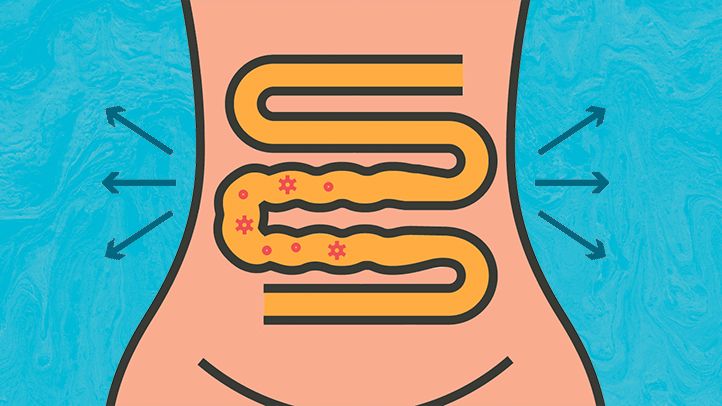Loose, watery bowel movements, often referred to as diarrhea, can be uncomfortable and disruptive to daily life. They may be caused by a range of factors, from infections and food intolerances to medication side effects or underlying medical conditions. Preventing diarrhea requires a multifaceted approach that includes lifestyle changes, dietary adjustments, proper hygiene, and sometimes medications like Nizonide 500mg.
This article will explore various strategies to help prevent loose watery bowel movements and provide insight into how medications like nizonide 500mg fit into treatment plans.
1. Maintain Proper Hydration
When you experience loose stools, your body loses fluids rapidly, which can lead to dehydration. While staying hydrated helps manage diarrhea, proper hydration can also prevent it. Drinking an adequate amount of water daily keeps the digestive system functioning efficiently. This, in turn, can prevent irritation and abnormal bowel movements.
Tips
Drink at least 8–10 glasses of water daily. Include electrolyte-rich fluids such as coconut water or oral rehydration solutions (ORS) when dealing with mild symptoms of diarrhea. Avoid excessive caffeine and alcohol as they can irritate the digestive tract and lead to dehydration, potentially triggering diarrhea.
2. Focus on a Balanced Diet
Your diet plays a crucial role in maintaining gut health. A diet that lacks balance or includes irritants can lead to digestive distress, resulting in diarrhea or loose stools.
Key Considerations
Fiber-Rich Foods
Fiber is essential for digestive health as it absorbs water and adds bulk to the stool. Soluble fiber (found in foods like oats, apples, bananas, and carrots) helps slow down digestion and can prevent diarrhea. However, excessive consumption of insoluble fiber (such as in raw vegetables and whole grains) might exacerbate diarrhea symptoms, so it’s important to find a balance.
Avoid Spicy and Fatty Foods
Greasy, fatty, or highly spicy foods can irritate the lining of your stomach and intestines, leading to increased bowel movements and discomfort.
Probiotics
Including foods that promote healthy gut bacteria, such as yogurt, kefir, and fermented vegetables (like kimchi and sauerkraut), can help prevent digestive disturbances. Probiotics are beneficial bacteria that help maintain a balanced intestinal environment, reducing the risk of diarrhea.
Tips
Gradually incorporate fiber into your diet to avoid overwhelming your digestive system. Include bland, easily digestible foods like bananas, rice, applesauce, and toast (the BRAT diet) when you feel your stomach is upset.
3. Identify and Eliminate Food Intolerances
Food intolerances and allergies are common culprits of diarrhea. Lactose (found in dairy products) and gluten (found in wheat, barley, and rye) are two of the most common food intolerances that can cause diarrhea. Identifying the foods that trigger your symptoms can help prevent episodes of loose bowel movements.
How to Prevent Diarrhea from Food Intolerances
- Keep a food diary to track what you eat and when symptoms appear. This will help you identify potential food triggers.
- If you suspect a specific food is causing problems, try an elimination diet, removing that food from your diet for several weeks to see if symptoms improve.
- Once you identify the culprit, either eliminate it from your diet or consider alternatives, such as lactose-free milk or gluten-free products.
4. Practice Good Hygiene
Poor hygiene can lead to bacterial, viral, or parasitic infections, which often cause diarrhea. These infections are commonly spread through contaminated food or water.
Hygiene Practices to Prevent Infections
Handwashing
Always wash your hands with soap and water, especially before eating and after using the bathroom. This is one of the most effective ways to prevent infections.
Food Safety
Ensure your food is cooked thoroughly and stored at proper temperatures. Avoid consuming raw or undercooked meats, eggs, or seafood.
Safe Water Sources
Drink only clean, purified water, especially when traveling to regions with a high risk of water contamination. If necessary, boil water or use water purification tablets.
5. Use Medications Cautiously
Certain medications can have side effects that affect the digestive system, causing loose bowel movements. If you are taking antibiotics or any other medications that disturb the gut flora, diarrhea may occur as a side effect.
Key Tips
- When on antibiotics, consider taking probiotics concurrently to help restore the balance of healthy gut bacteria.
- Avoid overusing medications like laxatives or antacids, which can disrupt normal digestion and lead to diarrhea.
6. Medications like Nizonide 500mg for Specific Infections
Certain cases of diarrhea, particularly those caused by parasitic infections like giardiasis or cryptosporidiosis, may require the use of antiparasitic medications. The nizonide 500mg is a nitazoxanide-based medication commonly prescribed for treating diarrhea caused by parasitic infections. Nitazoxanide works by interfering with the energy metabolism of the parasites, thus killing them and preventing further infection.
If you are prescribed Nizonide 500mg, it’s crucial to follow the dosage and treatment course as directed by your healthcare provider. Incomplete treatment can result in recurrence or resistance to medication.
Considerations When Using Nizonide 500mg
- Take the medication as prescribed, even if you start to feel better before the course is complete.
- Make sure to inform your doctor of any other medications you are taking, as Nizonide may interact with certain drugs.
- Along with Nizonide, maintain proper hydration and follow dietary recommendations to support recovery.
7. Manage Stress
Stress can have a significant impact on digestive health. For many people, chronic stress leads to a variety of gastrointestinal symptoms, including diarrhea. The gut is often referred to as the “second brain,” and emotional distress can trigger abnormal bowel movements through the gut-brain connection.
Ways to Reduce Stress and Prevent Diarrhea
- Practice relaxation techniques such as deep breathing, yoga, or meditation to reduce anxiety and stress.
- Engage in regular physical activity, which helps maintain overall health and promotes healthy digestion.
- Maintain a healthy work-life balance and get enough sleep to support your mental and physical well-being.
8. Avoid Contaminated Food and Water When Traveling
Travelers are particularly prone to developing diarrhea, often referred to as “traveler’s diarrhea,” due to exposure to new bacteria or parasites in contaminated food or water.
Preventive Measures
Avoid drinking tap water in areas where sanitation is questionable. Opt for bottled water, and ensure that any ice added to your drinks is made from purified water. Stick to well-cooked foods and avoid street food that might be exposed to contamination. Peel fruits and vegetables yourself to reduce exposure to bacteria on the surface.
Conclusion
Loose watery bowel movements can often be prevented through a combination of proper hygiene, dietary adjustments, stress management, and careful medication use. For individuals dealing with parasitic infections, medications like Nizonide 500mg offer an effective treatment option, provided they are taken as prescribed. By adopting these preventive measures, you can reduce the likelihood of experiencing diarrhea and maintain a healthy, balanced digestive system.
If symptoms persist despite these preventive strategies, it’s essential to consult with a healthcare provider to rule out any underlying medical conditions and receive appropriate treatment.




